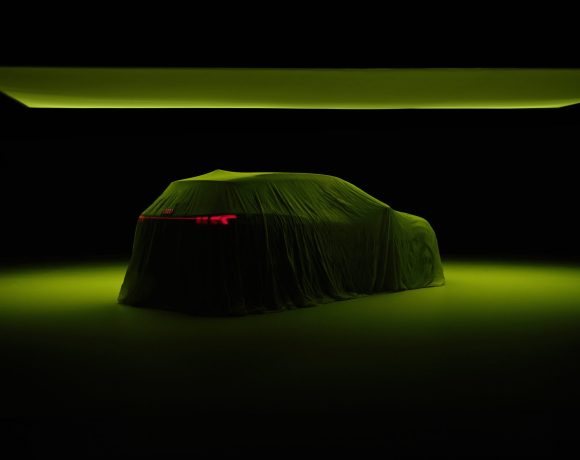22nd ASCER Tile of Spain Awards announces the winners

The competition features a total prize fund of €35,000
The jury of the prestigious 22nd ASCER Tile of Spain Awards (2023 edition) has announced the winners of the well-established competition’s architecture and interior design categories.
The distinguished jury – headed by the renowned architect Carme Pinós, and with the architect Jesús Olivares (COR Asociados Architects), the designer Inma Bermúdez, the director of Diariodesign, Gracia Cardona, and the architect and president of the Castellón Architects’ Association, Susana Babiloni, as members – met at the ASCER headquarters in Castellón recently, to deliberate on and finalise the winners.
In this context, the jury chose to award the architecture award to the project ‘Casa Puntiró’ by Ripoll-Tizón architects’ studio. The same studio won the prize in 2022, while the interior design award went to the project ‘Casa Isabel la Católica’ by Agustín Gor Gómez (GRX Arquitectos).
The lead winners in the architecture and interior design categories each received a monetary prize of €15,000, followed by a degree project category cash prize of €5,000 for eligible students of advanced technical architecture schools in Spain.
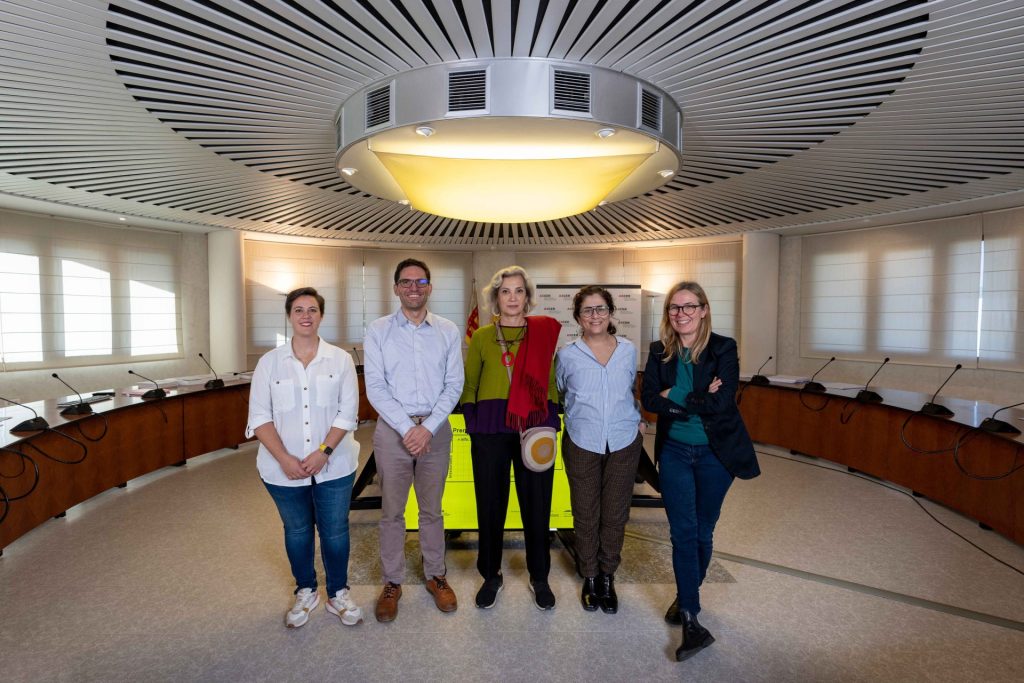
Organised and promoted annually by ASCER – the Spanish Ceramic Tile Manufacturers’ Association – the globally renowned Tile of Spain Awards seek to showcase and enhance awareness of ceramic tiles made in Spain amongst architects and interior designers and promote their use by these industry professionals in their architectural and interior design projects, both in Spain and across the globe.
The Tile of Spain Awards competition is open to architecture and interior design projects and industry professionals based in Spain and worldwide, with entries having to make significant use of Spanish ceramic floor and wall tiles in the formal part of a commercial, public, or residential building project.
Architecture category
In selecting the project ‘Casa Puntiró’ (Mallorca) by Ripoll-Tizón architects’ studio as the overall winner in the architecture category the jury considered the project to be a very well-integrated one, with a coherent blend of chosen materials and architectural formulae.
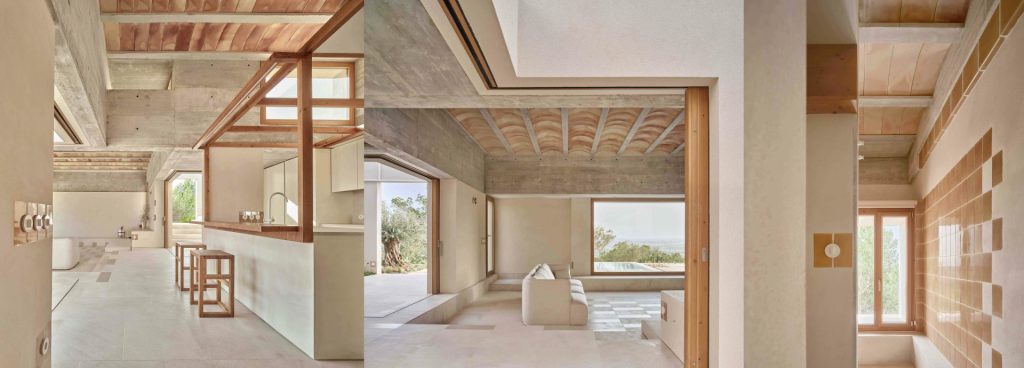
The project paid well-balanced attention to materiality, structural aspects, and architectural solutions, clearly conceived from the beginning. The jury also highlighted the architects’ skilled choice of materials and the project’s fine architectural points.
In the architecture category, the judges’ finalist projects were:
‘Square + bus-stop in Vinarós’ by La Errería Architecture Office (Luis Navarro Jover + Carlos Sánchez García).
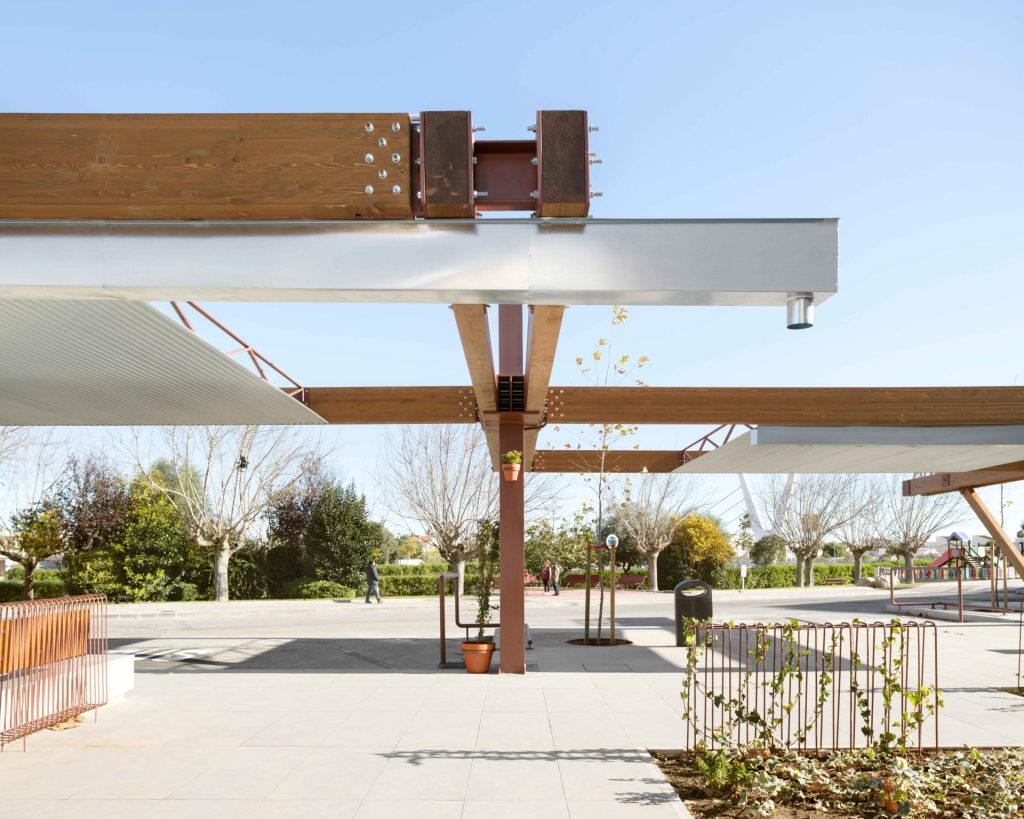
‘Alterations and extensions to Buenavista Cultural Centre’ by Padilla Nicás Arquitectos + Mariluz Sánchez.
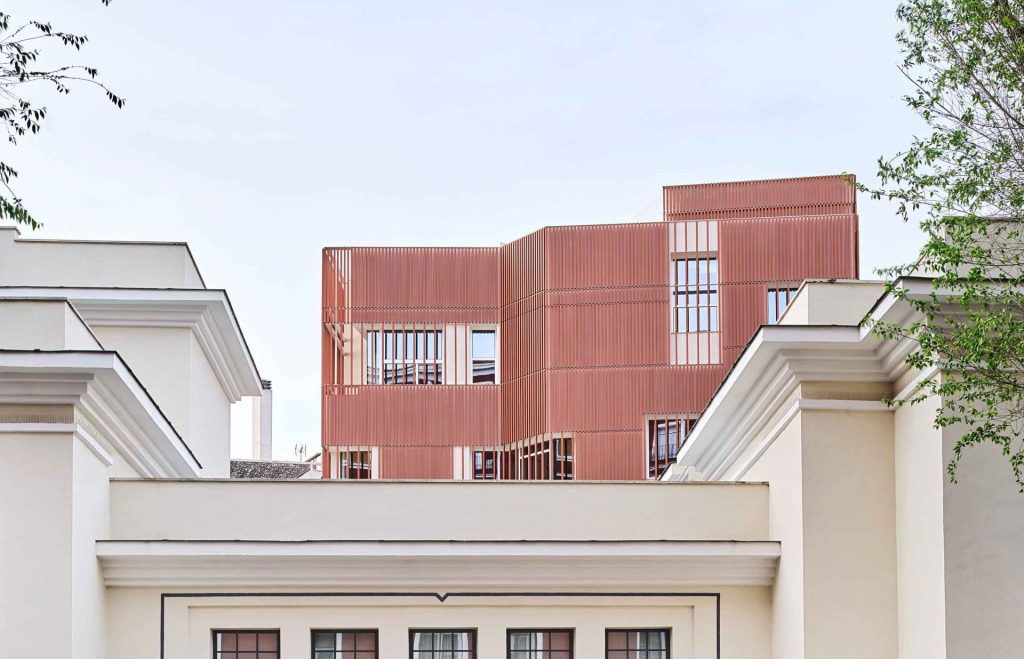
‘María Zambrano Infant School’ by Magén Arquitectos.
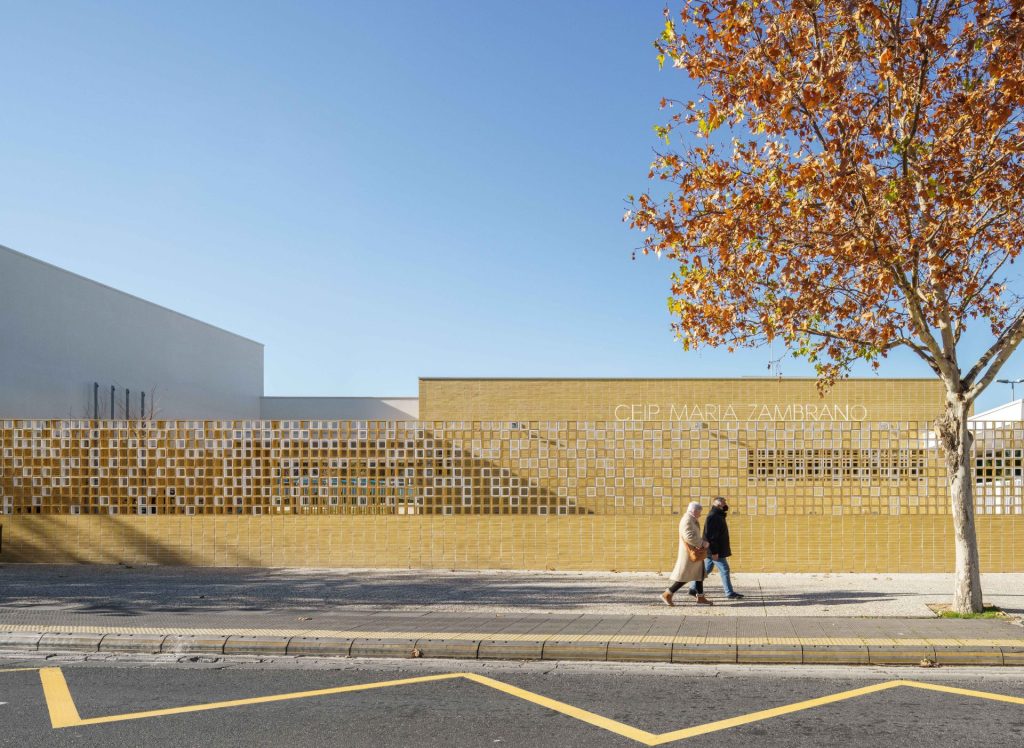
‘Conversion of an abandoned building into 27 apartments’ by NUA arquitectures (Arnau Tiñena Ramos, Ferrán Tiñena Guiamet, María Rius Ruiz).
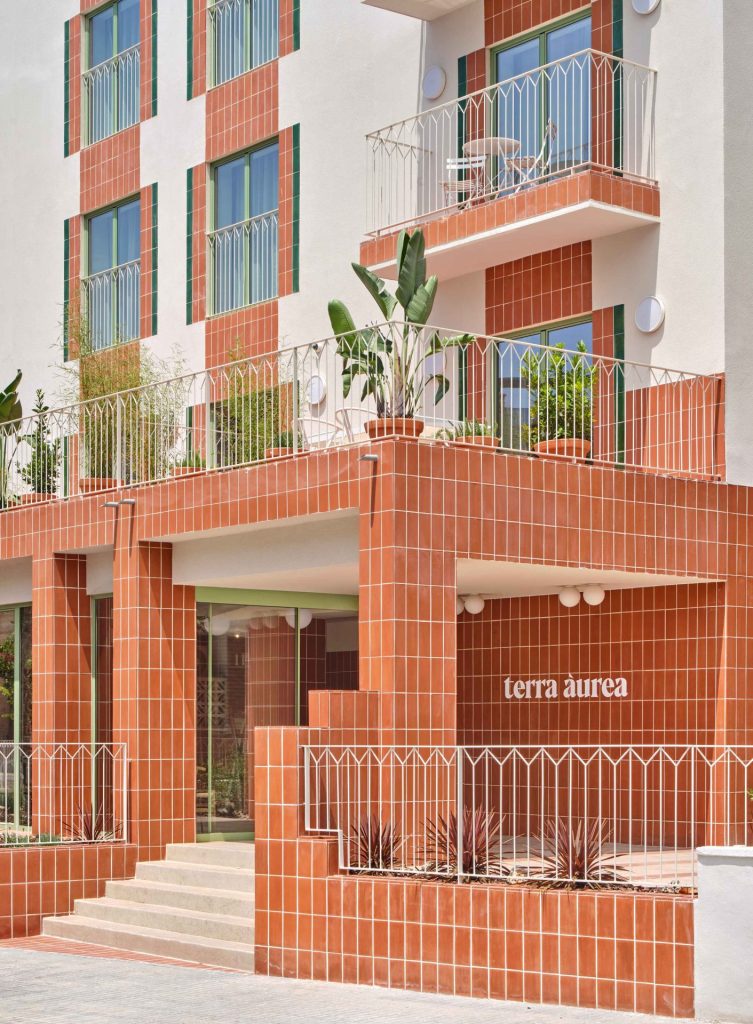
Interior design category
In determining the project ‘Isabel la Católica House’ by Agustín Gor Gómez (GRX Arquitectos) in Granada as the winner of the interior design category, the judging panel noted the use of a timeless, standard 10x10cm ceramic tile throughout the house, adapted to fit in with its plasticity.
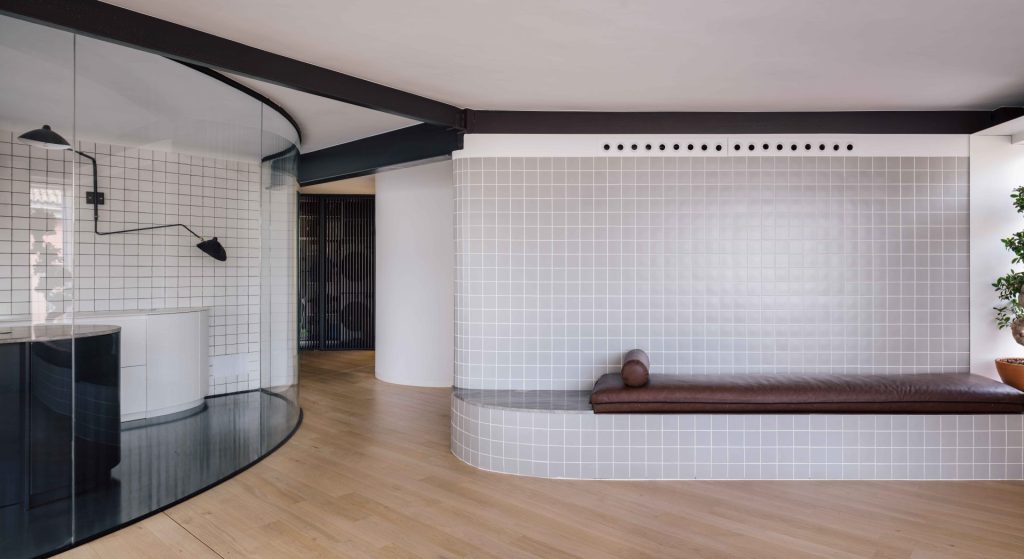
While praising the skilful choice of colours used throughout the project, the jury also observed that movement is generated with just one tile model and sufficiently versatile to clad all kinds of surfaces, even curved ones.
The jury also awarded a special mention in the interior design category to the project ‘Cloud House’ by Studio Animal.
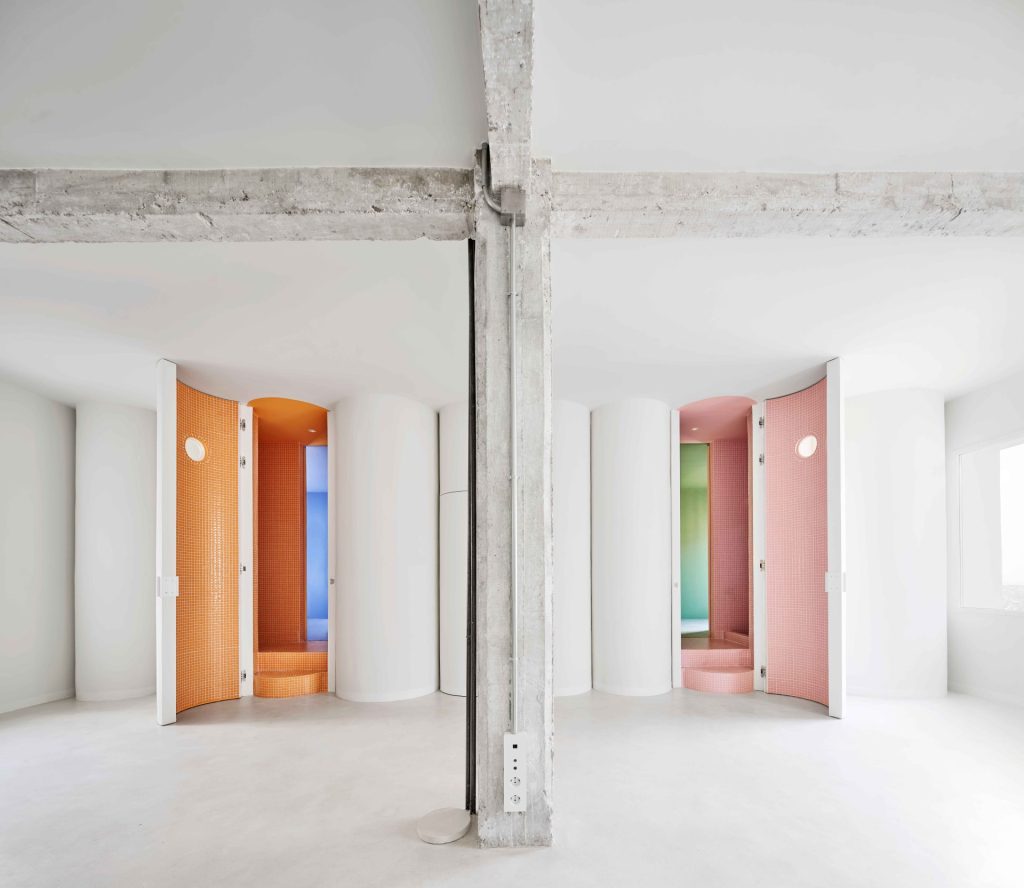
The jury praised the solution to the typical problem of refurbishing a highly compartmentalised small or medium-sized house: placing all the communal areas on one side and the private ones on the other, with a buffer area between them like a cloud, differentiated formally and in material terms.
In the interior design category, the judges’ finalist projects were:
‘Cabanyal House’ by Viruta Lab.
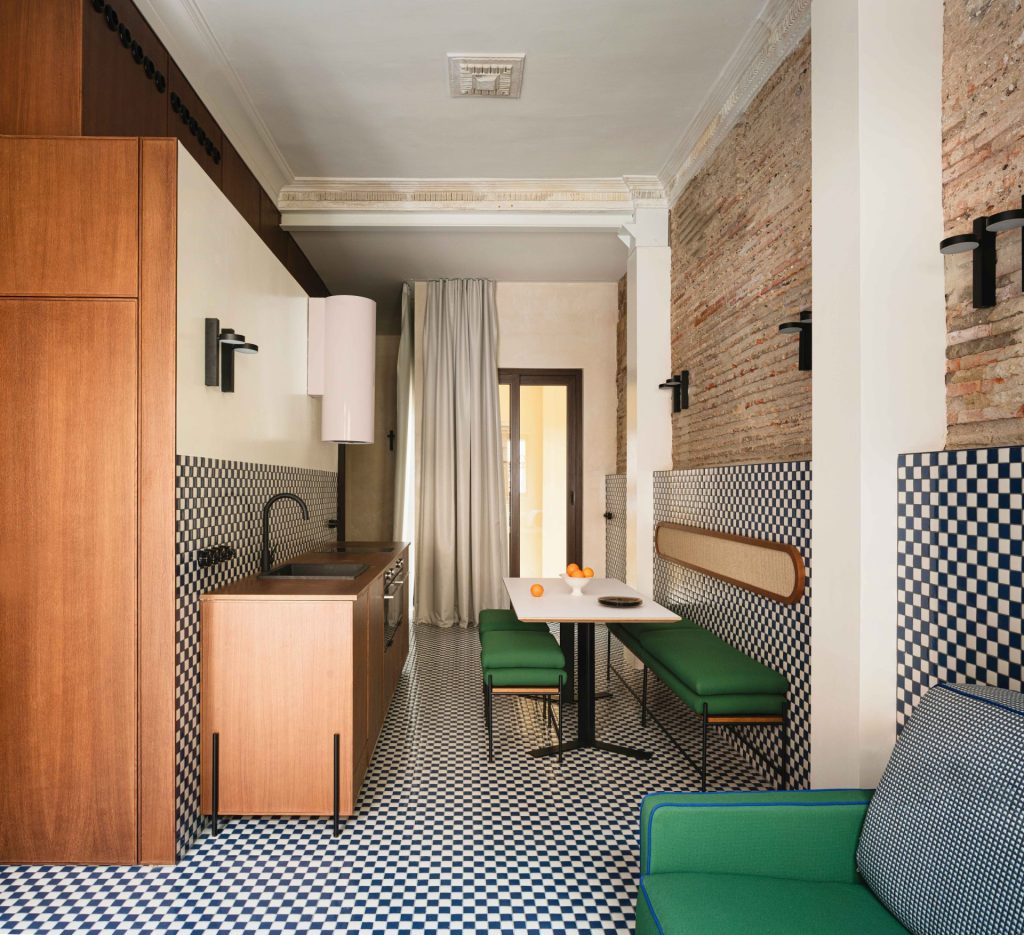
‘Urban Cabinet Series (2): The Expanded Columns’ by Beatriz Arroyo and Lys Villalba.
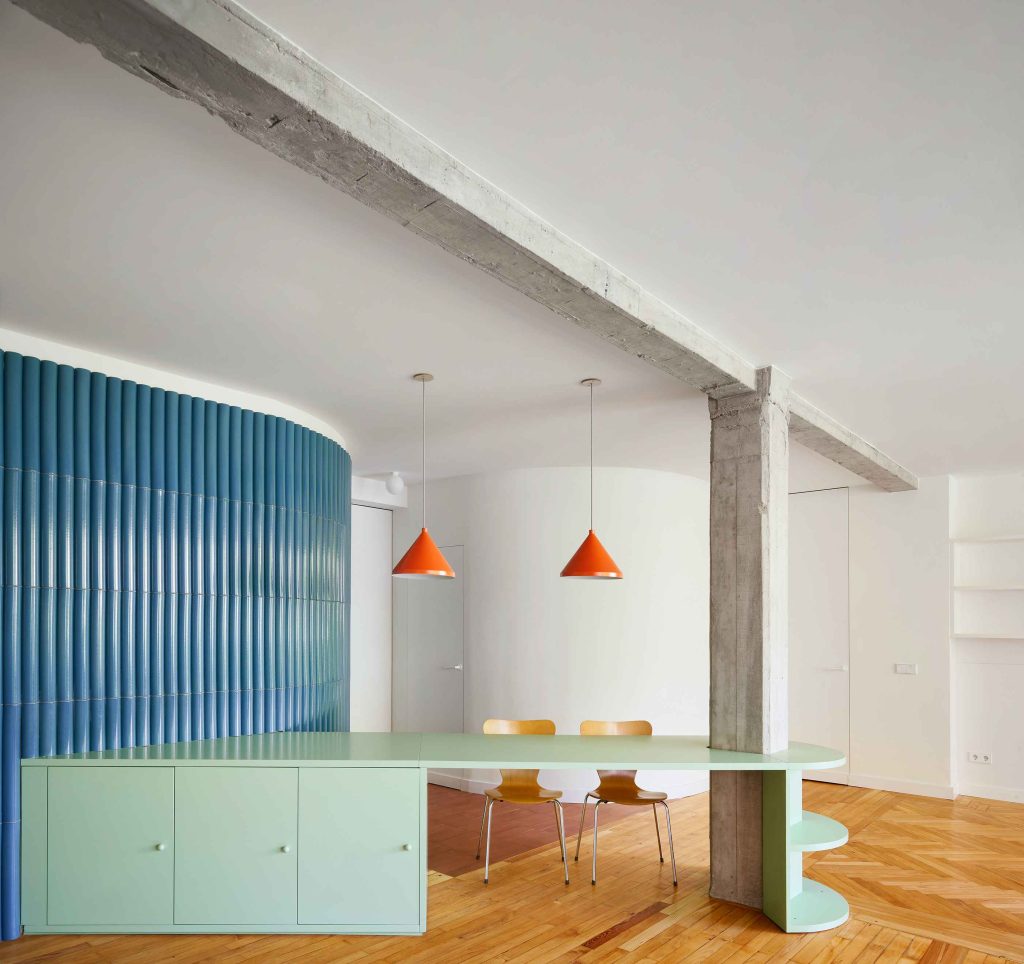
The finalist projects in the architecture and interior design categories include various typologies and uses of ceramics: urban, façade, refurbishment, and public equipment.
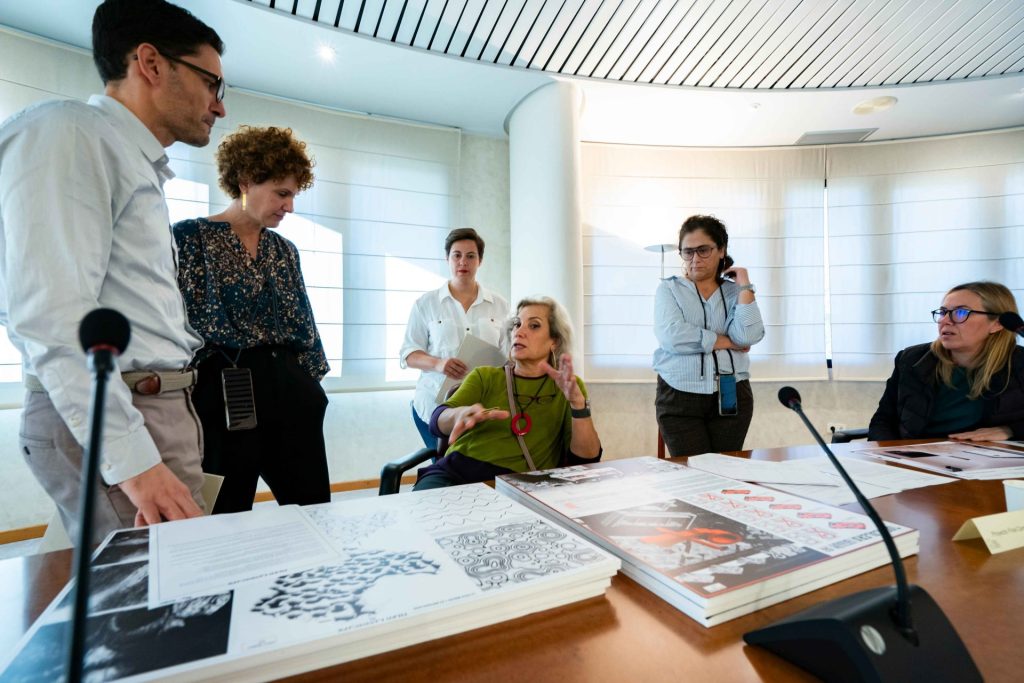
The 22nd Tile of Spain Awards were sponsored by Endesa and the Valencia Port Authority, with the support of the Conselleria de Hacienda of the Valencian Government.
Last Updated on 1 year by Arnold Pinto

